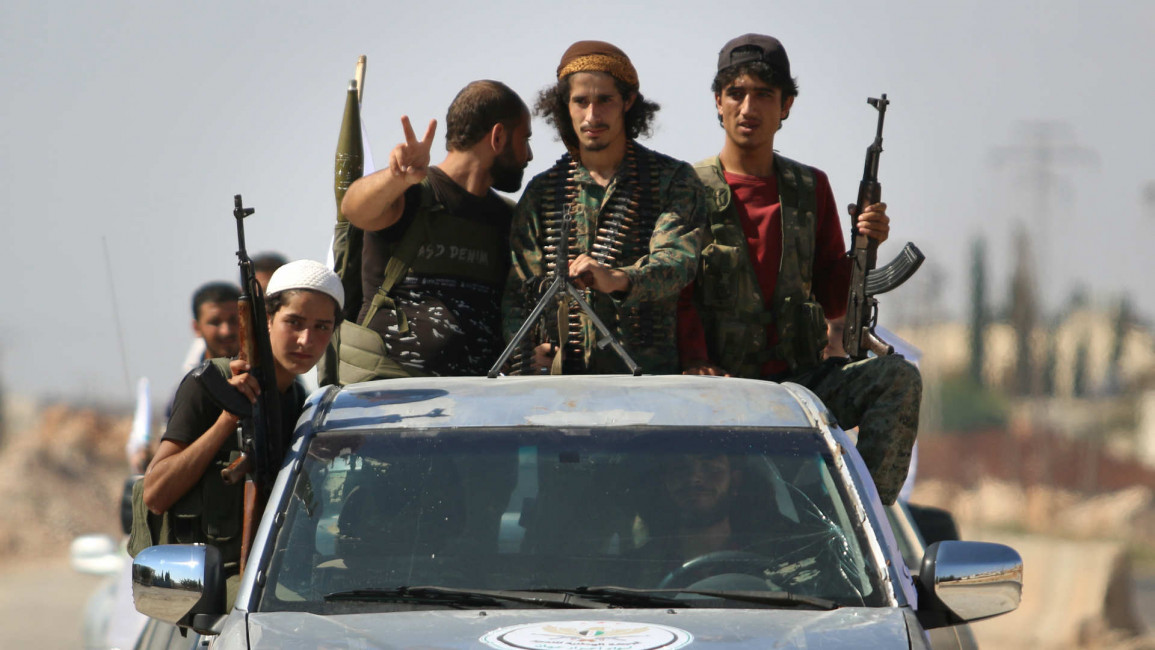Rebel group cautiously accepts Moscow-Ankara Idlib deal
A rebel group in Syria's last major opposition bastion of Idlib have cautiously accepted a Moscow-Ankara deal to prevent a Russian-backed regime attack in the northwestern province.
But the dominant force in the province, the Hayat Tahrir al-Sham alliance led by jihadists of Syria's former al-Qaeda affiliate, has not declared its stance on the deal.
Late on Saturday, the National Liberation Front (NLF) rebel alliance in a statement accepted the deal reached on Monday for Idlib, but said they remained on their guard.
They announced "full cooperation with our Turkish ally in helping to make a success their efforts to spare civilians from the afflictions of war".
"But we will stay alert to any betrayal by the Russians, the regime or the Iranians," the NLF warned, fearing the agreement to be "temporary".
"We will not abandon our weapons, our land or our revolution" against the Russia- and Iran-backed forces of President Bashar al-Assad, the rebels said.
Twitter Post
|
Also on Saturday, in a statement circulated on social media, the Al-Qaeda-linked Hurras al-Deen rejected the agreement reached in the Russian resort of Sochi.
Monday's agreement provides for a U-shaped buffer zone 9 to 12 miles wide to be set up around Idlib.
Under the deal, all factions in the planned demilitarised zone must hand over their heavy weapons by 10 October, and radical groups must withdraw by 15 October.
Both Hurras al-Deen and NLF rebels are present inside this planned buffer area, as well as the dominant HTS alliance.
In August, HTS leader Abu Mohamed al-Jolani warned opposition factions in Idlib against handing over their weapons.
The UN had previously warned that an all-out regime assault on Idlib, which is home to three million people, would trigger a humanitarian catastrophe and possibly one of the worst bloodbaths of Syria's seven-year war.
More than 360,000 people have died and millions displaced from their homes since the regime responded to anti-Assad protests in 2011 with brutal repression.


![President Pezeshkian has denounced Israel's attacks on Lebanon [Getty]](/sites/default/files/styles/image_684x385/public/2173482924.jpeg?h=a5f2f23a&itok=q3evVtko)



 Follow the Middle East's top stories in English at The New Arab on Google News
Follow the Middle East's top stories in English at The New Arab on Google News


